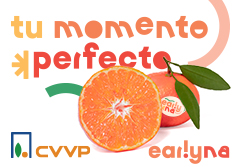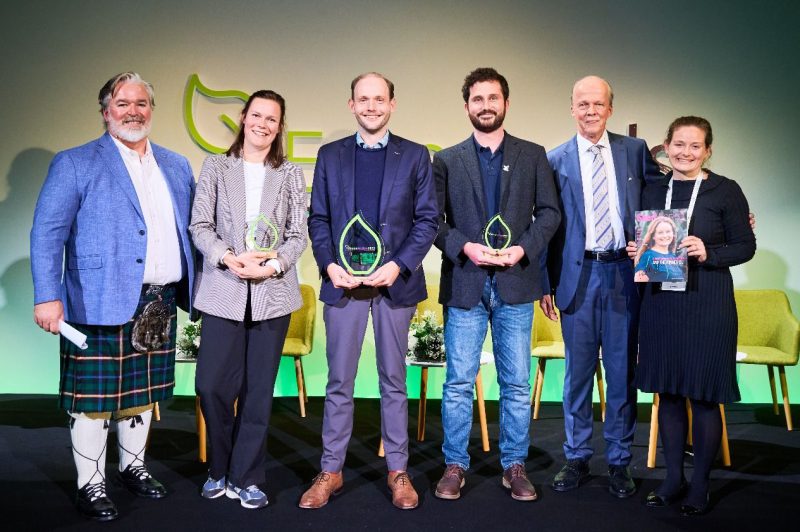The Almería-based company POLYFLY has won second place in the prestigious InnovAction Stage Awards at Euroseeds Congress 2025, which recognizes the most transformative innovations in the European seed industry.
The top prize went to German company phenoLytics, specializing in advanced 3D and 4D phenotyping technologies using X-ray and laser imaging, while third place went to Swedish firm Cgrain, which automates grain inspection with artificial intelligence to analyze and classify seeds accurately and objectively.
With this important recognition, POLYFLY strengthens its leadership in AgTech and reaffirms its commitment to science-based innovation.
“This award validates years of collaboration with the industry to make hoverflies a reliable, scalable, and sustainable pollination tool,” said Marc Vaez-Olivera, CEO and co-founder of POLYFLY.
“Our goal is to help seed companies and producers improve seed yield and quality while ensuring a more robust, resilient supply chain less exposed to disruptions that may affect pollinator availability,” he added.
Held from 19 to 22 October 2025 at the Edinburgh International Conference Centre (EICC), the Euroseeds Congress is the leading annual gathering of the European seed sector, bringing together major companies, SMEs, startups, and research centers with the most promising innovations in the field. The 2025 edition was moderated by Shawn Brook (President, Seed World Group) and Garlich von Essen (Secretary General and CEO of Euroseeds).
Among the event’s key takeaways, speakers emphasized that innovation in the seed sector depends on curiosity, collaboration, and perseverance, connecting talent, investment, and technology. The conference program combined business networking, technical innovation, and regulatory discussion. The next edition, in 2026, will take place in Valencia, Spain.
Pioneering hoverfly pollination technology
POLYFLY was recognized for its pioneering hoverfly pollination system, introducing a new category of managed pollinators — a complementary alternative to bees and bumblebees — designed to improve productivity and quality in seed production. Its approach combines efficiency, operational resilience, and sustainability, enhancing fruit set, germination rates, and seed weight across various crops and production systems.
Science-based innovation
Numerous studies identify dipterans, including hoverflies, as the second most important group of pollinating insects worldwide, after bees, highlighting their crucial role in agricultural crops and managed ecosystems. This scientific evidence strongly supports the use of hoverflies as strategic allies for the seed industry.
POLYFLY’s solution integrates two high-performance natural pollination systems: GOLDFLY® (Eristalinus aeneus) and QUEENFLY® (Eristalis tenax), both designed to operate independently or in combination with bees, bumblebees, and other pollinators. Together, they provide flexibility and resilience in addressing pollination deficits in multiple production systems — including greenhouses, tunnels, net houses, and open fields.
An Almería startup bringing innovation from Spain to Europe
From its base in Almería (Spain), POLYFLY has become one of the most successful examples of the Spanish AgTech ecosystem, demonstrating the ability of startups born in Europe’s agricultural epicenter to compete with international technology leaders. Its participation and recognition at Euroseeds 2025 consolidate over eight years of experience and innovation as a pioneer in biotechnology applied to pollination.
The world’s first industrial facility for mass hoverfly breeding
POLYFLY has built the world’s first industrial plant designed specifically for large-scale hoverfly breeding, a milestone in agricultural biotechnology. With a production capacity exceeding one billion hoverflies per year, the facility represents an unprecedented advance in developing natural pollination solutions for agriculture.
Located in Almería, the plant is already attracting interest from potential strategic partners across multiple continents, who see it as a “blueprint” for future hoverfly production facilities. It is the result of over eight years of intensive R&D carried out at the company’s pilot plant. “The idea itself isn’t new — many researchers have worked for decades on mass-rearing eristaline hoverflies,” explains Marc Vaez-Olivera.
“We’ve simply made it a reality through the dedication of our multidisciplinary team, the support of our ‘4F investors’ (Family, Friends & Fly Fanatics, as we like to call them), and the addition of institutional investors such as the European Innovation Council and Axon Partners Group.”
A study by the POLYFLY team shows that entomologists and agronomists around the world have been investigating the potential of eristaline hoverflies as pollinators for over 50 years, laying the scientific and technical foundation for this new industrial stage. The company now faces a new challenge: to supply seed producers worldwide with a sustainable, efficient solution that guarantees effective pollination.
Currently, POLYFLY is developing an international distribution and technology transfer network, with the aim of bringing its managed pollinators to various global regions — actively helping to reduce the global pollination deficit, while strengthening agricultural productivity and food security through a science-based approach.
What are hoverflies?
Hoverflies, also known as flower flies, are dipterans that play a crucial role in both agricultural and natural ecosystems. Most species seek accessible pollen and nectar from a wide range of flowers and, thanks to their pollination capacity, contribute to the reproduction of more than 500 plant species, boosting agricultural yields.
Hoverflies mimic the appearance of bees and wasps (Hymenoptera) through an evolutionary phenomenon known as Batesian mimicry, an adaptive strategy in which a harmless species imitates the appearance or behavior of a more dangerous one to deter predators. However, they are completely harmless and do not sting.
They also stand out for their remarkable adaptability to diverse environmental conditions — both cold and heat — enabling consistent pollination even under challenging climates.
POLYFLY is currently the only company in the world supplying these pollinators as ready-to-release pupae, in scalable formats adapted to different production systems — from greenhouses and tunnels to net houses and open fields — effectively complementing or replacing bees and bumblebees in demanding conditions.




















